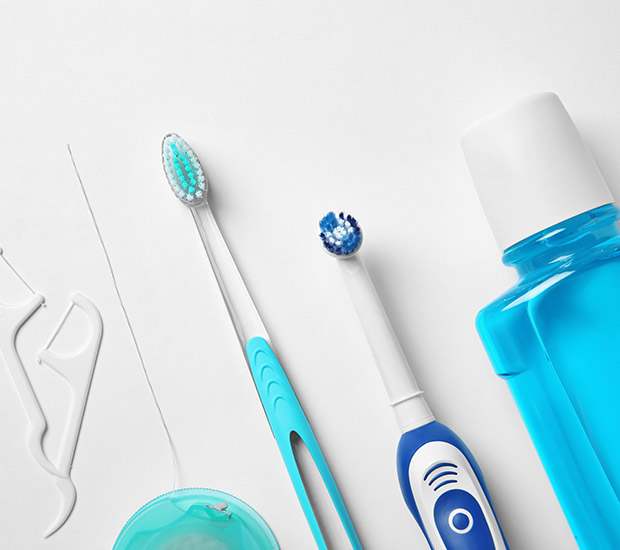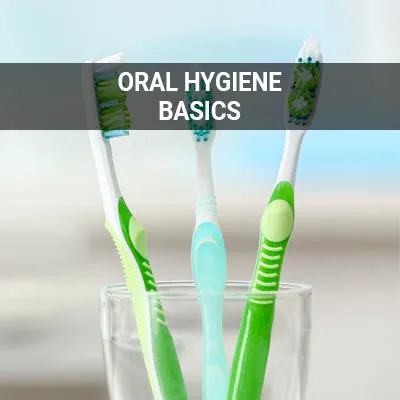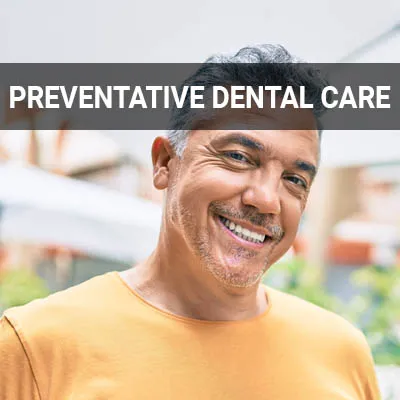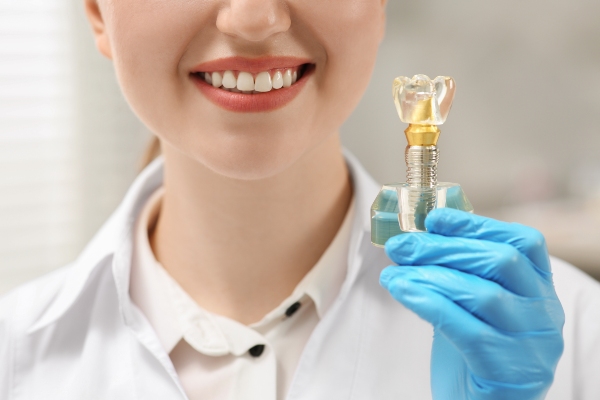How Proper Oral Hygiene May Improve Overall Health Las Vegas, NV
As oral health has a profound impact on our physical health, proper oral hygiene may improve overall health. Heart disease, diabetes, pregnancy, and other conditions are often influenced by the health of a person's teeth and gums. The oral health connection to overall health and well-being is another reason why it is important to seek dental care.
Looking at dental care as a crucial component of overall health can promote healthier habits as well. A dentist is available at Hybrid Dental in Las Vegas and the surrounding area. If you have oral health issues and wonder how your dental health impacts your overall health status, call us at (702) 628-5807 to schedule an appointment today.
The Oral Health Connection
According to WebMD, the mouth acts as an entryway to the digestive and respiratory tracts. It is a natural breeding ground for bacteria. Most of these are harmless and can be kept under control with proper oral health care and the body's natural defenses. However, without appropriate maintenance, disease-causing bacteria may accumulate over time.
Dental Health and Heart Health
It has been a long-established fact that there is a relationship between gum disease and heart disease. However, experts have yet to determine whether or not this is a causal relationship. In any case, existing research suggests that clogged arteries, heart disease, and stroke are associated with the inflammation and infections usually accompanied by dental bacteria.
Dental Health and Diabetes
Dental health and diabetes have a bidirectional relationship, meaning they both affect each other directly. Diabetes reduces the body's ability to resist infection, making patients more at risk of developing gum disease. At the same time, those with gum disease tend to have more difficulty controlling their blood sugar levels.
“According to WebMD, the mouth acts as an entryway to the digestive and respiratory tracts. It is a natural breeding ground for bacteria.”
Dental Care for Diabetics and Pregnant Women
Diabetes
People who have diabetes must be especially careful to practice good dental hygiene. Since the disease limits the body's ability to fight infection, cavities and gum disease can develop and worsen quickly in the presence of diabetes. At the same time, people who have gum disease are more likely to have unstable diabetes. Individuals diagnosed with type 1 or type 2 diabetes should work with a dentist to ward off cavities and periodontitis.
Pregnancy
Researchers have identified an association between gum disease and poor pregnancy outcomes. Pregnant women who have periodontal disease are more likely to experience premature delivery and to have an infant with a lower-than-average birth weight. The Centers for Disease Control and Prevention estimates that up to 75% of pregnant women have gingivitis, which occurs in the earliest stages of gum disease. Practicing good dental hygiene can reduce these risks significantly.
“Since the disease limits the body’s ability to fight infection, cavities and gum disease can develop and worsen quickly in the presence of diabetes.”
Lifestyle Choices and Oral Hygiene
Patients' dietary habits and lifestyle choices can also affect their dental health. Accordingly, neglecting to maintain one's oral hygiene will negatively affect one's overall health (and vice versa). As an example, one of the worst contributors to tooth decay and gum problems is excess sugar consumption. Particularly in its processed form, excess sugar consumption facilitates bacteria growth in the mouth.
Smoking is also a top contributing factor. Inhaled cigarette smoke is toxic, interferes with blood flow, and can potentially lead to oral cancer. Additionally, excess drinking will cause patients to have habitually dehydrated mouths, creating a breeding ground for bacteria. There also tends to be a correlation between those with alcoholism and poor oral hygiene habits.
Furthermore, changes in body weight may negatively affect denture fit. Loose fitting dentures may cause gums to suffer.
Some medications can also contribute to one's oral health, especially if they dry up saliva — as previously mentioned, dehydrated mouths are more prone to gum disease and tooth decay.
“Accordingly, neglecting to maintain one’s oral hygiene will inevitably negatively affect one’s overall health (and vice versa).”
Check out what others are saying about our dental services on Yelp: How Proper Oral Hygiene May Improve Overall Health in Las Vegas, NV
Preventing Systemic Disease Related to Oral Health
When tooth decay and gum disease develop, the body's immune response causes inflammation, which results in symptoms like redness, swelling, and pain. Ongoing dental inflammation may cause an increased immune response throughout the person's biological systems.
In addition, bacteria that gather in the mouth can enter the bloodstream and cause systemic infection. Systemic infection refers to an infection that spreads throughout the body systems, which can pose greater risks for other health conditions or worsen existing conditions. For these reasons, good dental hygiene is the first line of defense against cavities and periodontal disease that may lead to further health problems.
“Good dental hygiene is the first line of defense against cavities and periodontal disease that may lead to further health problems.”
Questions Answered on This Page
Q. How does dental health affect the rest of the body?
Q. How do lifestyle choices affect oral hygiene?
Q. How does dental hygiene affect patients with diabetes?
Q. How can proper oral care prevent systemic disease?
People Also Ask
Q. What is the importance of a healthy mouth baseline?
Q. What are some of the common dental conditions that occur during pregnancy?
Q. What are the effects of chronic oral inflammation on the rest of the body?
Q. Why is preventative care important? How can it save you money?
Maintaining Oral Hygiene at Home
Nothing can replace the expertise of a complete health dentistry doctor. Keeping regular appointments is crucial to maintaining oral health, especially since each patient requires personalized care. Luckily, there are many things patients can do on their own to take care of their teeth.
Patients should brush their teeth at least twice a day: once in the morning and once before bedtime. Germs and plaque accumulate throughout the day and should be removed whenever possible. It is essential to use proper technique while brushing and to remember to include the tongue. Using a fluoride toothpaste will also offer extra protection against tooth decay.
Flossing should be treated with the same importance as brushing, as it can help stimulate the gums while reducing plaque and inflammation. Those who have trouble using dental floss may want to look for alternatives, such as ready-to-use flossers. Swishing with a good quality mouthwash afterward also helps, as does drinking water, eating crunchy fruits and vegetables, and limiting sugary and acidic foods.
Frequently Asked Questions
Q. What are the signs of oral health problems?
A. People should see a dentist if they experience pain, swelling, bleeding, or sensitivity in the mouth or gums. Chronic bad breath can also signify tooth decay. In severe cases, the person may have loose or missing teeth.
Q. Who is at risk of diseases that result from the oral health connection?
A. People who smoke seem to be at the highest risk for oral health issues and other health problems. Those who have one or more chronic conditions are more likely to develop tooth decay and gum disease than healthy individuals. Adults ages 55 and older also have an increased risk for dental health issues and systemic concerns.
Q. What conditions have been linked to poor oral health?
A. Many people are surprised to learn how many conditions are linked to poor oral health. Diabetes, pulmonary, and cardiac disease are all linked to oral health conditions. Periodontal disease is also a complication of osteoporosis. There are even studies that show a link between oral health and Alzheimer's and dementia.
Q. How should I prepare for a visit with a dentist?
A. Patients should prepare for their first appointment by attaining their medical records or providing access to them. Write down any questions about oral health and how it may affect overall health. The dentist will ask for the patient's symptoms, medical history, medication use, habits, nutrition profile, and other information that can influence dental and systemic health, so have these details ready.
Q. Why is dental care important to overall health?
A. Many oral health conditions and systemic diseases do not produce symptoms until advanced stages. Screening by a professional can help treat any existing conditions or prevent future problems from happening. Having regular dental visits also gives the patient access to treatment that can keep health problems from worsening.
Dental Terminology
Call Us Today
Our team at Hybrid Dental may be able to help. Call us today at 702-628-5807 to schedule an appointment or to learn more about our services.
Helpful Related Links
- American Dental Association (ADA). Glossary of Dental Clinical Terms. 2024
About our business and website security
- Hybrid Dental was established in 2012.
- We accept the following payment methods: American Express, Cash, Check, Discover, MasterCard, and Visa
- We serve patients from the following counties: Clark County and Nye County
- We serve patients from the following cities: Las Vegas, Summerlin, North Las Vegas, Spring Valley, Paradise, Henderson, Centennial Hills, Mt Charleston, Enterprise and Pahrump
- National Provider Identifier Database (1306143847). View NPI Registry Information
- Healthgrades. View Background Information and Reviews
- Norton Safe Web. View Details
- Trend Micro Site Safety Center. View Details
Back to top of How Proper Oral Hygiene May Improve Overall Health
QR code for How Proper Oral Hygiene May Improve Overall Health










